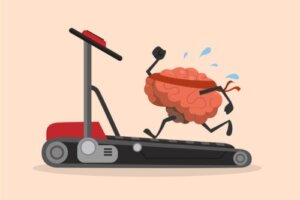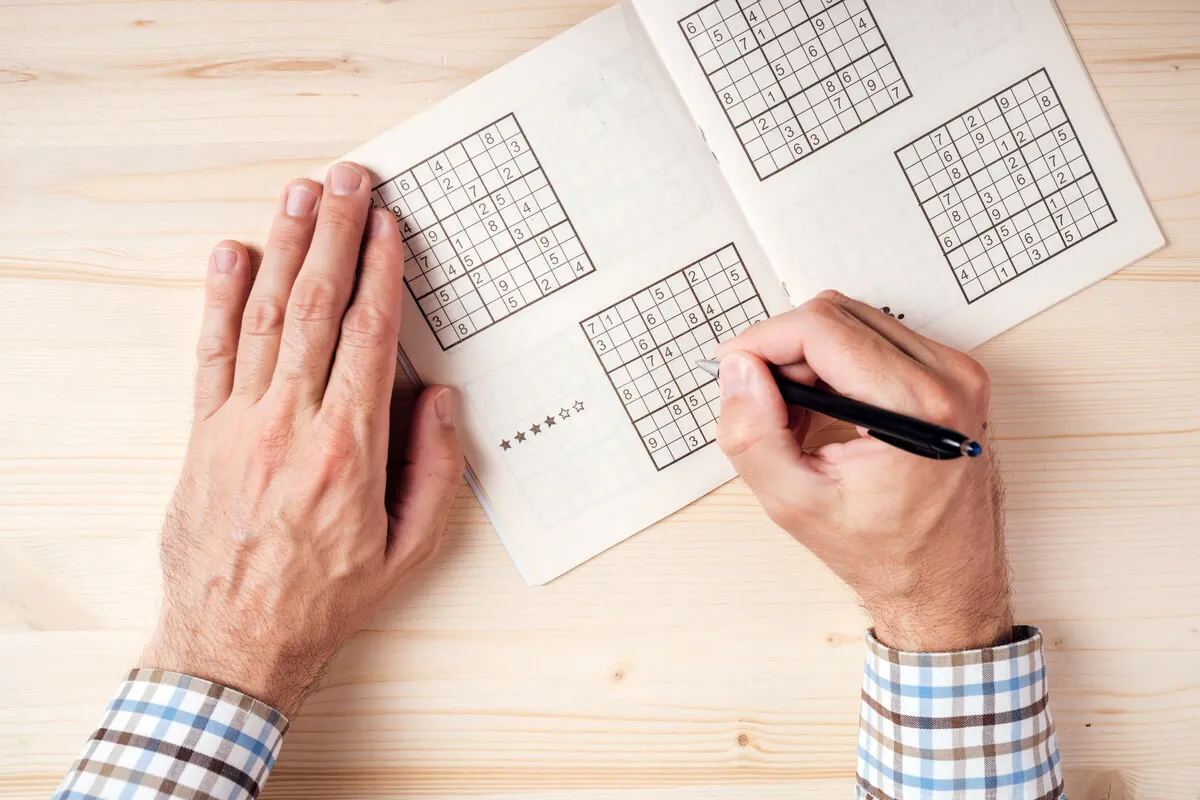Mental fitness: What It Is and Some Exercises

Most exercises, beyond the possibility they offer to work different muscle groups, are also great for our mental health. However, this is a ramification and not the central objective of the activities. Therefore, and as a valid resource focused on psychological well-being, mental fitness takes center stage.
Mental fitness is aimed at improving our quality of life that tends to diminish over the years. Thus, the initial focus was on the elderly. However, it can be used in any age range, because it allows anticipating the effects of old age.
What is mental fitness and why is it important?
Mental fitness is training that places the mind and the body on the same level of importance. This is achieved with intervals of activities for one and then for the other.
As for the activities aimed at cognitive development and stimulation that we can find, there are calculations, memory dynamics, listening to music, attention practices, games, and so much more.
Credit for the creation of this fitness modality goes to Fer González – a trainer at the Arsenal gym in Madrid – who used her personal experiences with older adults to offer an alternative to reduce the consequences of brain inactivity.
The importance of mental fitness lies in the improvement of brain capacity, since if the functions of memorizing, improvising, and problem-solving are left aside, the probability of suffering from Alzheimer’s increases. Likewise, the accelerated advance of technology has made things easier, but it has also limited our need for many common cognitive activities, because everything is automated now.

We think you may be interested in reading this, too: How Reading Changes the Brain and Benefits Mental Health
Mental fitness exercises
Mental fitness exercises are simple activities that are oriented in the right way to create the desired effect on cognitive functions. Therefore, training your thinking and including good habits are a great way to get your on your way to achieving wellness.
Always keep learning
When you reach a certain age, the tendency is to think that you’ve learned enough. However, this attitude is counterproductive for the functions of the brain due to the fact that capacities are being lost.
In short, one mental exercise that we should always practice is to study new subjects in totally unknown areas, so that our reasoning, interpretation, and memory abilities are favored. In this sense, learning leads to improving the communication of our neuronal networks.
Work out your memory
As we mentioned before, technology has caused us to place ourselves in a risky comfort zone for the brain, because it’s no longer necessary to remember or analyze too much. For this reason, another mental fitness exercise is directed towards memory.
The best way to work out your memory is to take enough time to search your brain for the information you need and not opt for the immediacy of the Internet. This creates a habit that activates the frontal lobe.
Stay social
Social activity is something that can tame down with age, since our routines often take over, limiting our social lives and interactions with our environments.
In that order of ideas, stimulating the brain through conversations on current issues and even from the transmission of knowledge to other individuals allows the mind to work and keeps it active.
Use silence in your favor
The need for social interaction doens’t mean that moments of silence cease to be relevant. The importance of avoiding noise (in some cases) is that there are brain functions that benefit from silence.
Therefore, alternating sound activity with silence in a balanced way is the best way to keep your brain healthy.
Play and reason
Playing is an initiative that unites entertainment and reasoning in a way that’s good for cognitive functions without being distinguished as a major effort. Of course, not all games have the same potential to develop mental well-being.
The ones that show the best response are Sudoku, crossword, memory, mazes, Rubik’s cube, and chess. When you play these games regularly, both your mental speed and memory will be in good shape.
Play sports and do exercise
Sports can’t be left out of the mental fitness exercises. Why not? Thanks to the oxygenation of the brain that they promote, they promote greater lucidity in making quick decisions, along with better memory performance.

Like this article? You may also like to read: The Modular Theory of Mind: How Does the Human Brain Work?
Complete your mental fitness session
Just as isolated workouts can be performed, it’s also possible to apply a complete session that alternates the aforementioned recommendations and exercises that preferentially target the muscles.
The sequence to be performed is as follows:
- Allocate 5 minutes to static and dynamic stretching (doing each exercise for about 30 seconds).
- Do 5 to 10 minutes of aerobic exercises: running, walking, and dancing are all great options.
- Practice cognitive stimulation exercises for 10 minutes.
- Perform 5 to 10 minutes of balance-enhancing movements. Yoga and tai chi are great options here.
- Then, perform a new round of cognitive stimulation aimed at working memory for 10 minutes.
- Do 5 or 10 minutes of strength exercises. Medicine balls and dumbbells are great for this.
- Enjoy a final 10 minutes of cognitive stimulation with games and classical music in the background to increase relaxation.
- Set aside 5 minutes for stretching.
What to remember about mental fitness
The mind and body require exercising in tandem in order to counteract the natural wear and tear of the body’s functions. It’s never too late to turn to mental fitness nor too early to start preventive activities.
Finally, it’s best to enjoy routines that make you feel comfortable in every sense, since fatigue and muscle injuries are not the goal here. Consequently, mental fitness offers the possibility to adapt your routines to your individual requirements.
All cited sources were thoroughly reviewed by our team to ensure their quality, reliability, currency, and validity. The bibliography of this article was considered reliable and of academic or scientific accuracy.
- Sánchez I y Pérez V. El funcionamiento cognitivo en la vejez: atención y percepción en el adulto mayor. Rev Cubana Med Gen Integr. 2008. Disponible en: http://scielo.sld.cu/scielo.php?script=sci_arttext&pid=S0864-21252008000200011&lng=es.
- Murillo A y Loo I. Influencia de la práctica del ejercicio en la funcionalidad física y mental del adulto mayor. Rev Enferm IMSS. 2007. Disponible en: https://www.medigraphic.com/cgi-bin/new/resumen.cgi?IDARTICULO=18878.
- Pons A. Metodología para el desarrollo de los juegos en la actividad física del adulto mayor en la comunidad. Opuntia Brava. 2018. Disponible en: http://200.14.53.83/index.php/opuntiabrava/article/view/636.
- Tello T, Alarcón R y Vizcarra D. Salud mental en el adulto mayor: trastornos neurocognitivos mayores, afectivos y del sueño. Revista Peruana de Medicina Experimental y Salud Pública. 2016. Disponible en: https://doi.org/10.17843/rpmesp.2016.332.2211.
- Hernández B, Chávez E, De la Concepción J, Torres A y Fleitas I. Evaluación de un programa de actividad físico-recreativa para el bienestar físico-mental del adulto mayor. Rev Cubana Invest Bioméd. 2017. Disponible en: http://scielo.sld.cu/scielo.php?script=sci_arttext&pid=S0864-03002017000400007&lng=es.
- Kandola, A., et al. “The association between cardiorespiratory fitness and the incidence of common mental health disorders: a systematic review and meta-analysis.” Journal of affective disorders 257 (2019): 748-757.
This text is provided for informational purposes only and does not replace consultation with a professional. If in doubt, consult your specialist.








